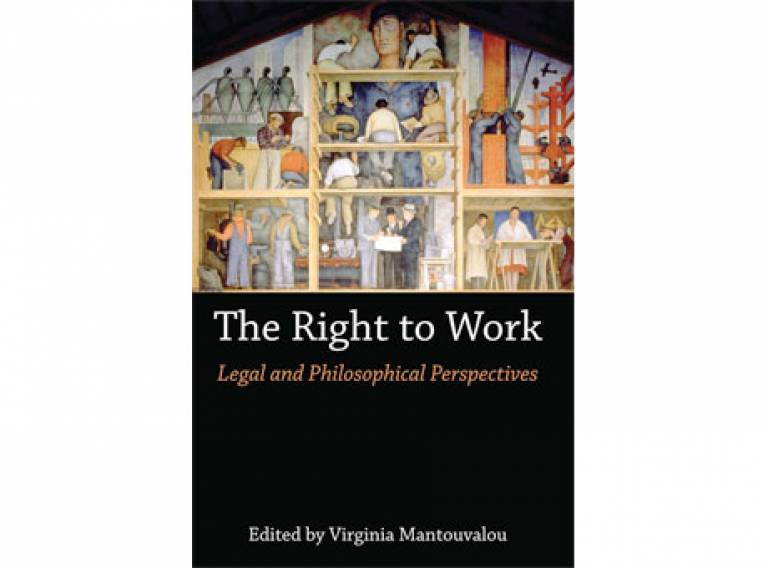Dr Virginia Mantouvalou publishes book on The Right to Work
18 February 2015
Legal and Philosophical Perspectives Edited by Virginia Mantouvalou
The value of work cannot be underestimated in today's world. It is valuable because productive labour generates goods needed for survival, like food and housing; goods needed for self-development, like education and culture; and other material goods that people wish to have in order to live a fulfilling life. A job also generally inspires a sense of achievement, self-esteem and the esteem of others. But the question remains, do we have a human right to work? If so, what is the content of the right? Does it impose a duty on governments to promote full employment? Does it entail an obligation to protect decent work? Do migrants have a right to work?
This book addresses the uncertainty and controversy that surround the right to work both in theoretical scholarship and in policymaking. It discusses the philosophical underpinnings of the right to work, and its development in human rights law in national jurisdictions including the United Kingdom, Australia, Japan, France and the United States, and at the international level of the United Nations, the European Social Charter, the International Labour Organization, the European Convention on Human Rights and other legal orders.
The Right to Work originated from a workshop on the Right to Work held at UCL Laws in 2012 organised by the UCL Institute for Human Rights and the UCL Labour Rights Institute, and supported by the Modern Law Review and the Human Rights Consortium of the School of Advanced Study. Bringing together scholars from around the world, the event explored the value of work in today’s world, both in terms of the accumulation of income and goods, but also in the generation of well-being and maintaining a sense of membership in society.
Acknowledging that work is a crucial good, The Right to Work considers whether we have a human right to this good, and who holds it.

 Close
Close

